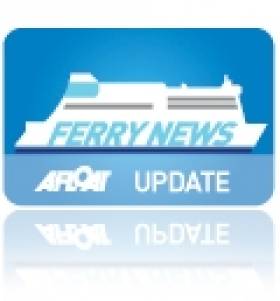Displaying items by tag: EU Regulations
Marine Notice: New EU Regulations for Ferry and Boat Passengers
#FERRY NEWS - The latest Marine Notice from the Department of Transport, Tourism and Sport (DTTAS) highlights the rights of ferry and boat passengers within the European Union under new legislation set to apply from 18 December 2012.
The European Union (Rights of Passengers when Travelling by Sea and Inland Waterway) Regulations 2012 give full effect to Regulation (EU) No 1177/2010, which has the objective of ensuring "a high level of protection for passengers using waterborne transport anywhere in the European Union by establishing certain rights and a minimum quality of service across the EU.
"It provides ship passengers with enhanced rights and includes provisions on non-discrimination and assistance for persons with disabilities and reduced mobility, rights relating to the provision of information to all passengers before and during a journey, assistance to passengers in the event of delays and, in certain circumstances, compensation for delays and cancellation of journeys."
The main elements of the new regulations are summarised in Marine Notice No 63 of 2012, a PDF of which is available to read or download HERE.
Meanwhile, the DTTAS is also reminding shipowners, masters and officers of their obligations as regards keeping a continuous navigational watch while at anchor.
Full details of obligations under the STCW Convention are included in Marine Notice No 62 of 2012, a PDF of which is available to read or download HERE.
Buying From Outside Europe? Make Sure Your Boat is EU Compliant
#BUYING A BOAT - Are you getting value for money when you buy a boat from outside the European Union? Leisure marine website BoatingBusiness takes a look at your options and responsibilities when it comes to importing from abroad.
"Many people underestimate the responsibilities of the importers, distributors and even buyers when they act as importers in Europe," they report, noting that all companies and individuals in the import chain must ensure that any boat coming into the EU complies with the necessary technical, ennvironmental and safety requirements for recreational craft.
To this end, the European Boating Industry has published a handy checklist that allows individual importers and distribution businesses alike to determine if their non-EU boat complies with EU regulations.
Items on the checklust include the boat builder's plate, which must include a CE marking. Boats must also carry a 14-character Craft Identification Number (CIM), proper engine identification (including a unique engine ID number), an owner's manual and a written Declaration of Conformity.
For vessels from outside the EU or new boat builds designed for non-EU markets, those putting them on the marketplace are responsible for arranging a post-construction conformity assessment to ensure compliance with EU rules.
Faulire to comply with these rules could see your boat suspended from circulation or even invalidate your insurance, so it's well worth putting in the effort!
The European Boating Instustry checklist is available as a PDF to read or download HERE.






























































